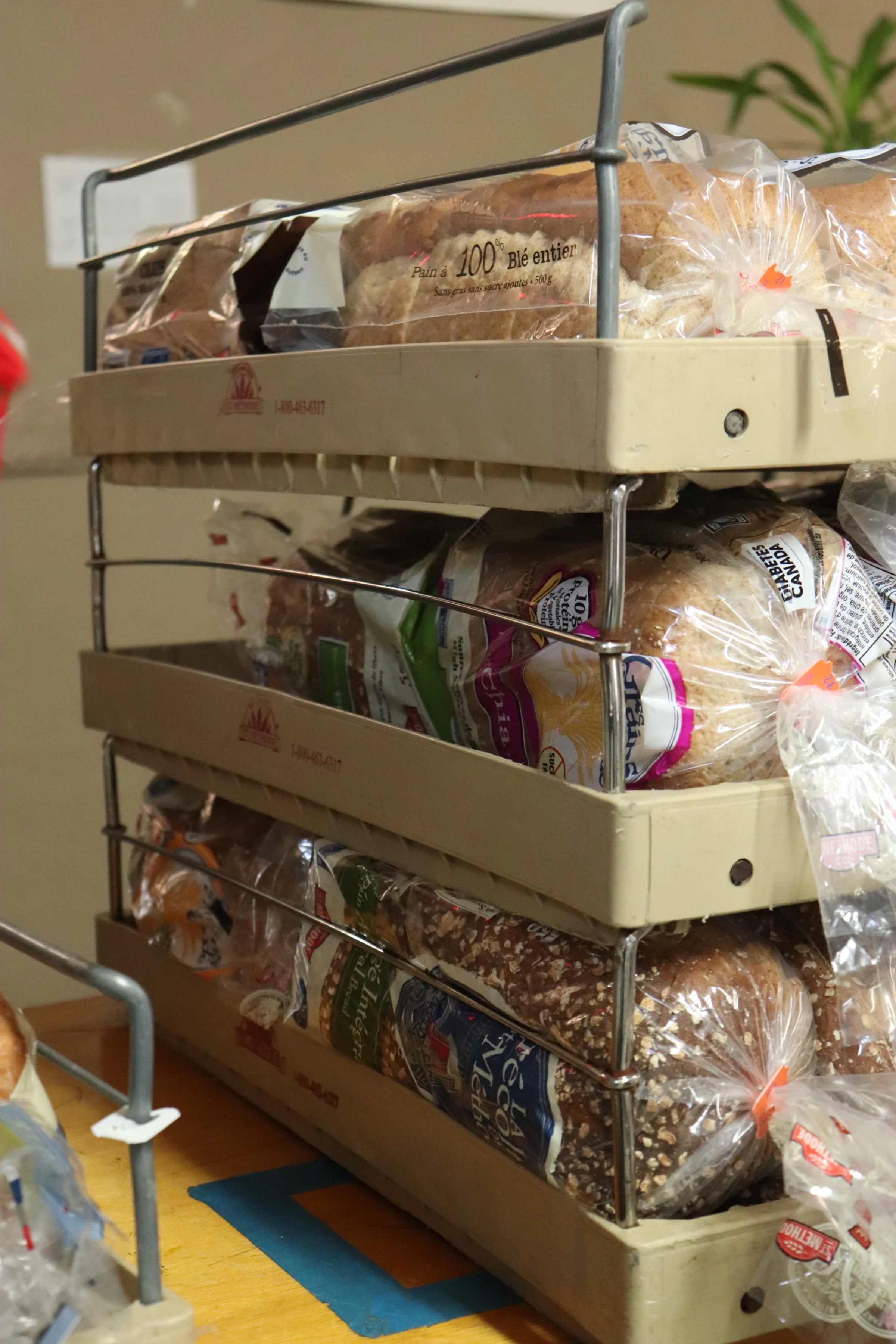The kitchen serves as the heart of the Benedict Labre House, enabling us to respond swiftly to the challenges of malnutrition in vulnerable populations and fostering better health for all our visitors. Our kitchen project has a positive impact on the community, contributing to a reduction in food insecurity among households and the homeless population in the South West of Montreal. Many of our services are dedicated to addressing food insecurity in our area, including a dedicated team that prepares meals during the day and evening, providing those facing homelessness or precarious situations with two meals a day.
In 2020, we initiated a food assistance project that has since evolved significantly. Originally distributing food baskets to address a gap in services, this initiative has transformed into a standalone food bank named EpiCentre, now independent from the Benedict Labre House. EpiCentre provides a food distribution service through home delivery for all residents of St-Henri and the South-West (H4C, H3K, H4E, H3J, and H3C). To reserve, please call them from Friday to Monday at (514) 970-5973.
EpiCentre Saint-Henri also operates as an online grocery store offering affordable fresh fruits and vegetables, with a bi-weekly pick-up service on Fridays between 2 and 5 pm. The order form is available from Friday through Tuesday (until 5 pm), and in-person orders are accepted on the Tuesday before the pick-up date between 2:00 and 4:30 pm.
The kitchen stands as one of the crucial workspaces at the Benedict Labre House. Participants in the pre-employability program undergo training and guidance from the project manager to adhere to MAPAQ standards. This encompasses learning proper food cutting techniques and instilling good hygiene habits within a food context. Participants acquire skills that prove beneficial not only in future employment but also in their overall lives.
Moreover, the kitchen serves as a vital platform for exchange between volunteers and participants, breaking the barriers of isolation and challenging preconceived notions about poverty. Cooking together fosters connections and allows for interventions in an atmosphere of trust and mutual respect.
Over the past year, the kitchen presented one of our significant challenges. The process of relocation, construction, and a lack of equipment posed difficulties for participants and the team alike. Despite these obstacles, they demonstrated creativity in crafting complete and nutritious meals, utilizing tools such as the slow cooker and barbecue.




